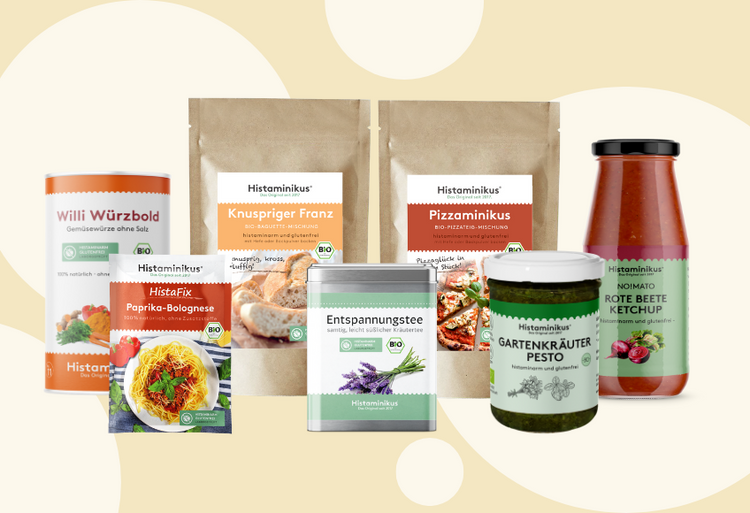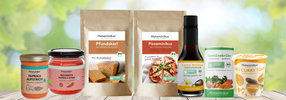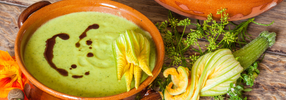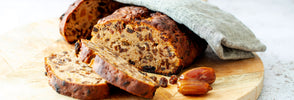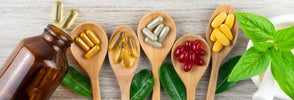
Councilor
A cold is one of the most common diseases that are particularly haunted by us in the colder months. It manifests itself through symptoms such as cough, runny nose, sore throat and general discomfort. But what exactly is behind it, and how can you protect yourself or relieve the symptoms if you are already affected?
What is a cold?
A cold, too flu infection called, is one Infection of the upper respiratory tract, caused by different Virus, in particular Rhinovirus. The transfer is mainly done by Droplet, so when sneezing, coughing or speaking. The viruses reach the mucous membranes of the nose and throat and can cause inflammation there. Typical symptoms are:
- Scratch in the throat
- Running or clogged nose
- Cough
- Head and body aches
- Fatigue and fatigue
The incubation period, i.e. the time from the infection to the outbreak of symptoms, is mostly one to three days. As a rule, a cold subsides after about a week. The course of a cold is often described with the saying "It comes for three days, she remains three days, she goes for three days", but the actual duration varies individually. In addition to the type of pathogen, play the General state of health And the behavior during the disease is a crucial role. If you are sufficiently easy, you can have a positive impact on the healing course. However, a cold can weaken the immune system and make the body more susceptible to further infections. Often one occurs Sinusitis (Sinusitis), in serious cases it can even be one pneumonia come.
The Risk of infection There is not only during the acute phase of illness, but can also last a few days after the symptoms subsided. How long a person remains infectious depends both on the respective Pathogen as well as from the individual Immune defense away. To protect others, it is advisable, Hygiene measures How regular hand washing and avoiding close contact until the risk of infection is completely over.
The difference between the cold and flu
The question often arises whether the first complaints are a simple cold or a real flu. While a cold can be triggered by different viruses, the flu is specifically caused by influenza viruses. The symptoms of a cold usually develop gradually and manifest themselves in a gradual feeling of illness with runny nose, slight sore throat and moderate headache. A flu, on the other hand, often occurs abruptly and is associated with severe body pain, high fever, extreme exhaustion and usually only slightly runny nose.
Antibiotics in a cold?
Many people wrongly assume that antibiotics are effective in a cold. Sometimes they are even prematurely prescribed by the doctor, even with slight symptoms. In fact, colds are usually caused by viruses, while antibiotics only act against bacteria. If we reach for these medication with every little cold, there is a risk that some bacteria will develop resistance in our body and damage our microbioma. Therefore, it makes more sense to relieve cold symptoms with proven home remedies and a health -promoting lifestyle and to consult a doctor instead of resorting to strong medication.
Cold in the case of histamine intolerance
When the body combats a viral infection, it increasingly pours histamine out to ward off the paths that have penetrated. For people with histamine intolerance, this natural immune response means a double load: in addition to the classic cold symptoms such as coughing, runny nose and fatigue, there are additional symptoms caused by the increased histamine level. Since both symptom complexes are very similar, it is often difficult to clearly distinguish them. It is also problematic that the tolerance limit for histamine in food decreases during a cold. This is due to the fact that the body has difficulties in the event of histamine intolerance anyway to reduce excess histamine. If the immune system is then also busy combating viruses or bacteria, the mast cells - the main actors of the histamine release - are literally in turmoil. This releases even more histamine, which can lead to a continued cycle of overreaction and increased symptoms. For those affected, this not only means a more intensive cold, but often also additional symptoms such as headaches, skin reactions or digestive problems.
Prevention: This is how you stay healthy
To prevent a cold, the following measures can be helpful:
- Note hygiene: regular hand washing with soap significantly reduces the risk of infection.
- Strengthening the immune system: a balanced (low -histamine) diet with lots of fruit and vegetables, regular movement in the fresh air and sufficient sleep support the immune system.
- Avoid stress: Chronic stress can weaken the immune system. Relaxation techniques such as yoga or meditation can help.
- Improve the room climate: Dry heating air dries out the mucous membranes. Humidifiers or shells with water on the heating can ensure a better indoor climate.
- Reduce social contacts: In times of high cold waves, it can make sense to avoid crowds.
Tips for a cold
If it has caught you, the following home remedies can alleviate the symptoms:
- Drink a lot: Warm teas calm down the neck with honey and help to loosen the mucus. Still water helps to reduce excess histamine.
- Inhale: steam baths with chamomile or essential oils moisten the mucous membranes and make breathing easier.
- Treat rest: your body now needs energy to combat viruses. Bed rest supports the healing process.
- Cold bath: A warm bath with additives such as eucalyptus oil can be beneficial. However, do without it in the event of a fever.
- Histamine -free feed: Pay attention to a low -histamine food, especially now so as not to put an additional burden on your body.
- Avoid stress: Because it lets your histamine level continue to rise.
Vitamin C, zinc and vitamin D are popular additions that can strengthen the immune system. These nutrients could help the body combat the cold faster and promote recovery. You can also find vitamin C and zinc in our Histaprevent dietary supplement. It helps you to cover your increased need for vitamin C, vitamin B6 and zinc.
- Combination of 2 different vitamin C sources: In addition to ascorbic acid, it also contains buffered vitamin C in the form of calcium ascorbate
- Buffered vitamin C is gastric -gentle and therefore ideal for sensitive people. It is particularly well absorbed by the body
- Provides the body high -dose vitamin C and vitamin B6
- Supplies the body with zinc
- Optimal care for a low -histamine diet
In many cases, a cold is harmless and does not require medical treatment. However, you should see a doctor if:
- The fever above 39 ° C rises or lasts for more than three days.
- Severe neck or earache occur.
- Cutting shortness of breath or breast pain.
- Do not subside the symptoms after a week or worsen.
- You belong to a risk group like an elevated age, pregnant women or people with chronic diseases.
With simple measures you can prevent and relieve the symptoms in an emergency. Listen to your body, treat yourself to rest and support your immune system as best as possible. However, if the symptoms stop or worsen, do not hesitate to obtain medical advice.
Stay healthy! 💚
Collapsible content
SOURCES
- https://my-histaminintoleranz.de/histaminintoleranz-und-erkaeltung-doppelt-belastet/
- https://vitamoment.de/blogs/magazin/tipps-gegen-erkaeltung
- https://www.aerzteblatt.de/archiv/35552/Psychoneuroimmunologie-Stress-erhoeht-Infektanfaelligkeit
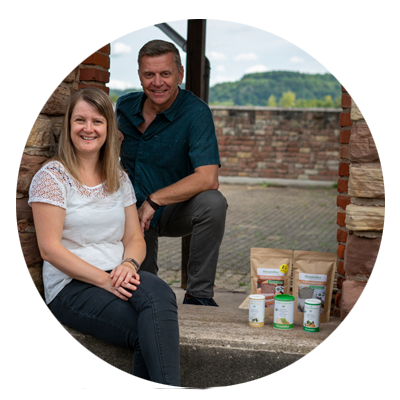
From those affected for those affected
We are Thomas and Michaela Zinser, founder of Histaminikus.
Because of the own histamine intolerance of Michaela and our son, we founded Histaminikus. The frustration does not find any suitable histamine food has spurred us to develop low -histamine food.
We would like to give you back a piece of quality of life. Feel free to look around with us.
Kind regards
Thomas and Michaela
